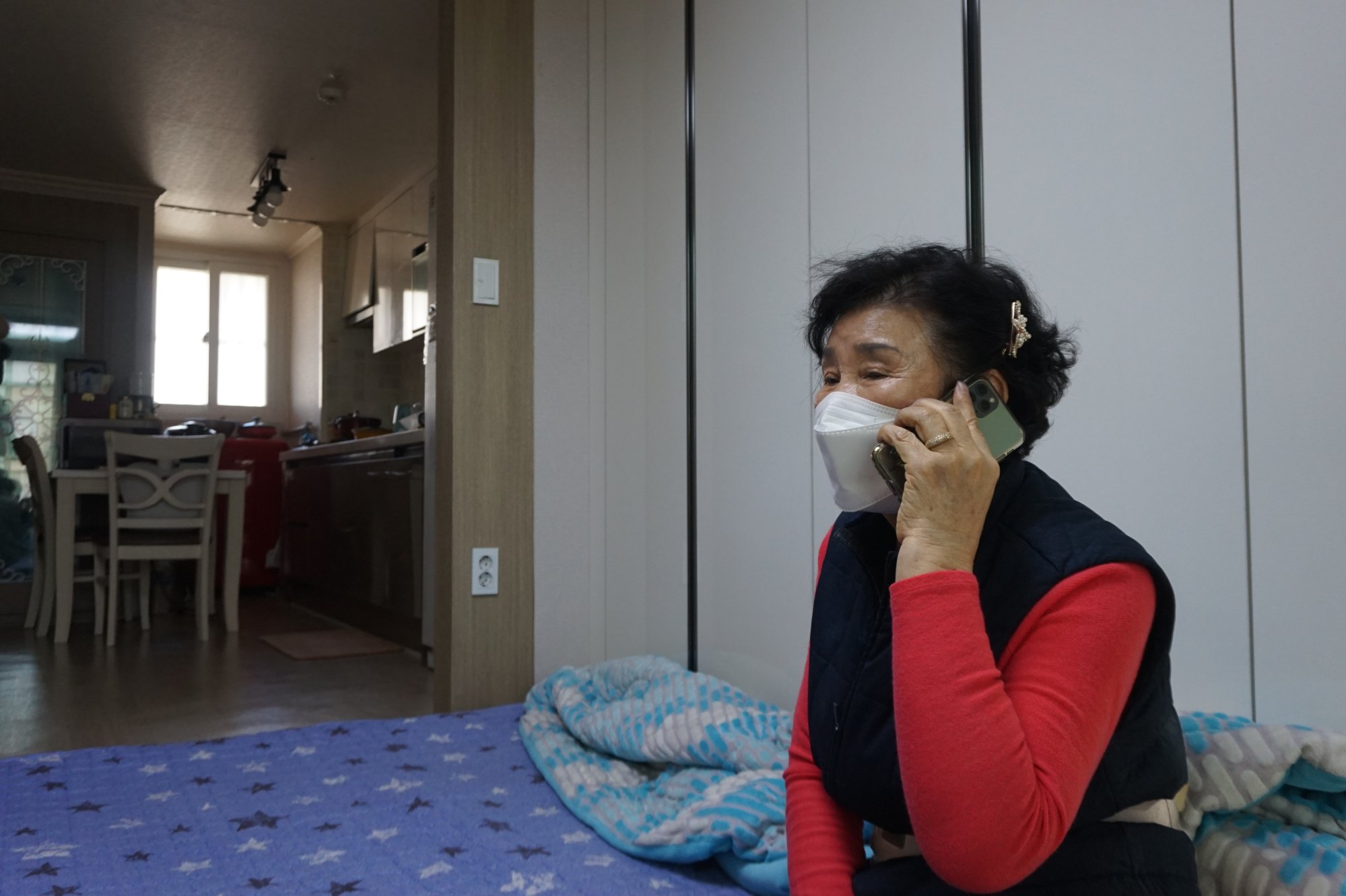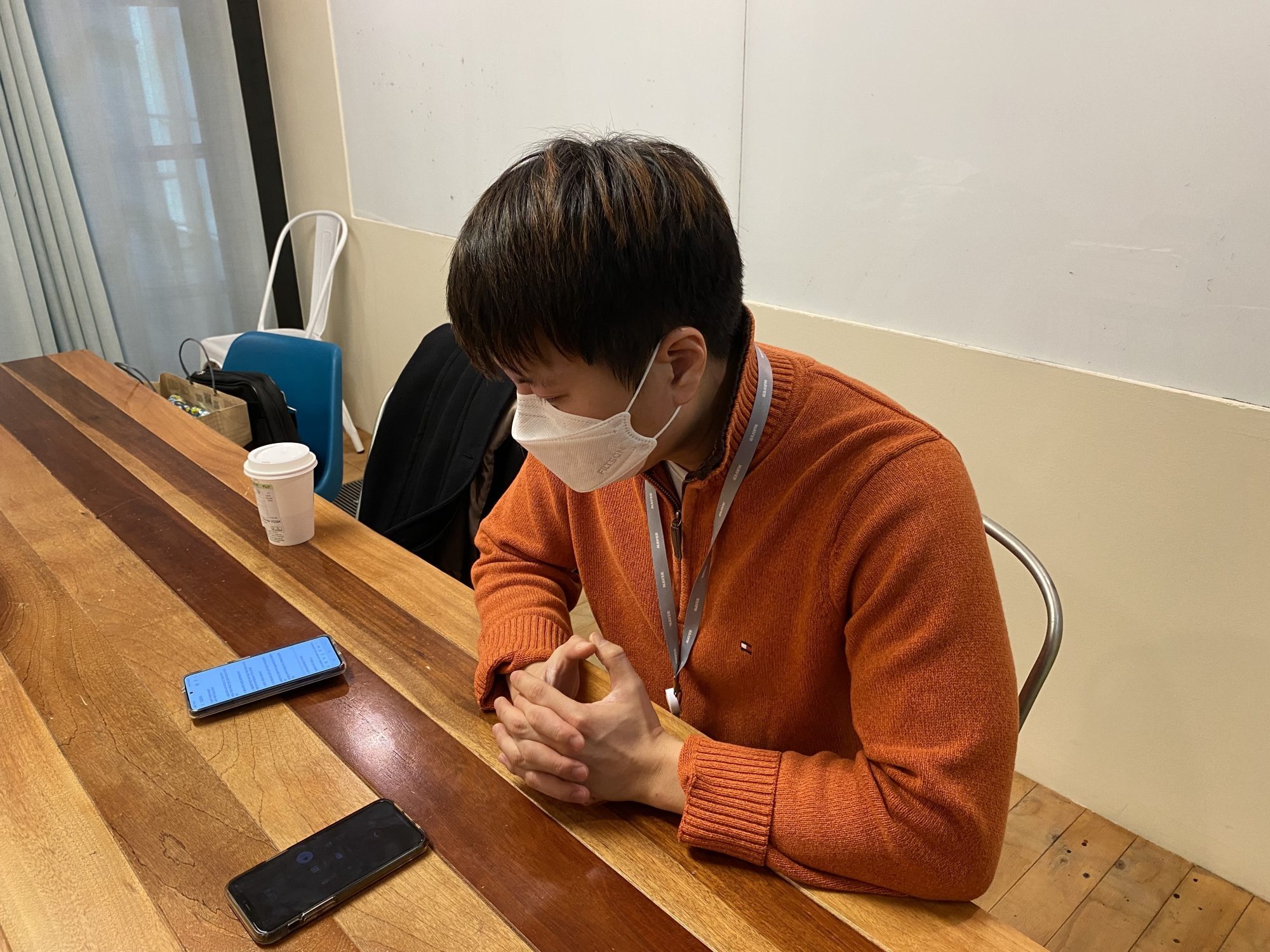
In South Korea, AI phone calls check up on lonely seniors in a country ageing faster than Japan
- Is artificial intelligence the future of elderly care? That’s a question seniors at a home in Busan should ask their new friend ‘Clova’
- Clova CareCall is a new AI by Naver that checks in from time to time by giving them a call. Some prefer it to human contact, even if conversations can be limited
Yang Sun-im, a 76-year-old mother of four, isn’t used to company.
She has spent most of the past four decades alone, having divorced her husband when she was 33. The four children she raised on her own have all grown up, made new lives far away and largely forgotten her.
“My daughter who lives with her family in Japan visits me once every year or two,” she says. “She’s the only person who calls me on the phone from time to time.”
Even in the senior citizens’ home in the southern port city of Busan, South Korea, where Yang now lives, she can get lonely. She is younger than her peers and has found making friends difficult.
But recently, Yang made a new friend who seems eager to chat – even if their conversations can sometimes feel a little stinted.

Suddenly, Yang’s eyes light up and there is laughter in her voice.
“It’s nice to hear from you,” Yang tells Clova, before chatting away as if to an old friend, joking that she can’t even name all the parts of her body that are in pain.
“Oh, I see. You will get better if you get treated regularly at the hospital,” Clova responds. “Yes, that’s how I’m trying to think,” Yang replies. “Thank you.”
Yang feels at ease when she speaks to Clova. She prefers not to call her children on the phone, even the daughter who has recently asked her to come and live with her in Japan.
Other than eating food, the only time that I open my mouth is when I get a call from Naver
“I don’t want to be a burden to my children who don’t look at me as their mother. I even signed up to be an organ donor so none of my children will have to prepare a funeral for me,” she says.
“Other than eating food, the only time that I open my mouth is when I get a call from Naver,” Yang says.
Even so, the conversation doesn’t always flow. Still in its trial stage, Clova CareCall was programmed to sound like a person and have warm reactions to things that seniors would typically say. But it is a work in progress and there are times when it doesn’t fully understand Yang’s voice or struggles to fill silences when Yang herself is lost for words.
As Yang admits: “There can be awkward pauses in our conversations.”

An epidemic of loneliness
South Korea became an “aged society” – one where the elderly population (those over 65) accounts for more than 14 per cent of the entire population – in 2017.
Along with this burgeoning population of elderly has come what some refer to as an epidemic of loneliness. According to the health ministry, one in 10 seniors have no contact with family members, while in 2018, 1.5 per cent of seniors living alone did not participate in social activities.
Filing this gap is exactly what Naver hopes to do with Clova CareCall.
One month in to its beta trial period in Haeundae, 90 of the 100 seniors who started receiving the calls have asked to continue with it.
Naver, which is offering the service free-of-charge at the moment, plans to extend Clova CareCall to other major cities such as Seoul and Daegu soon.
Asian country where old people die and no one notices for days
The service could prove particularly popular in rural regions such as North Gyeongsang and South Jeolla province where seniors make up more than 40 per cent of the population.
The company has been developing its AI department for more than 10 years, but it only looked into using the technology to provide senior care when localities including Haeundae reached out for assistance.
Ok Sang-hun, a manager of AI business development at Naver, said that the programme was able to understand “tens of thousands of question and answer scenarios” to provide as realistic company as possible.
“At first, we were worried that the seniors would feel like they were talking to robots,” says Ok. “But things exceeded our expectations. The AI was so good at talking people even wanted to know what its name was.”

The age of ‘taking care of yourself’
Lee Ho-sun has spent her entire professional life researching the state of families in South Korea.
The director of the Christian Counselling and Welfare department at Korea Soongsil Cyber University says that in South Korea, a collective society that has held onto conservative family values, children have traditionally been expected to take care of their parents in old age.
But over the past few decades this has been changing and the country has now entered the age of “taking care of yourself”.
“Taking care of family has taken a whole new meaning as our country went through extreme urbanisation,” she says. “Our institutions used to centre on extended families that reached up to three generations, but our current system is mostly concerned with the nuclear family.”
She is a big fan of Clova CareCall, describing it as a cost-effective way of communicating daily and “humanely” to seniors who are isolated.
Clova is only the latest robot to have been recruited in the fight against loneliness for South Korea’s ageing seniors. For those seeking a physical presence there is Hyodol, robot dolls made to look like grandchildren. However, Hyodol, introduced in 2017 by the company of the same name, doesn’t share the deep-learning technology that Clova is built on.
More modern AI devices, like Clova, are able to check on the health and risk status of seniors, provide emotional care and even counselling.
There would be nothing more inhumane than the act of leaving senior care all in the hands of AI
AI technology is also being used in public health centres across the country, in programmes where supercomputers analyse patients’ medical histories then message their phones to tell them what medicines to take and at what time.
While many in South Korea’s medical circles are opposed to integrating supercomputers like IBM’s Watson into the diagnosis and treatment of patients, Lee thinks it’s only a matter of time until the technology comes into wider use.
“Today, we are at the stage of providing services to seniors living alone. But providing benefits doesn’t truly enhance the quality of lives for seniors,” Lee says. “We need to go one step further where seniors develop skills on their own, assert their rights in society and participate in the conversations about their futures.”
Given the vast diagnostic abilities of AI computing there may even be an argument that talking to Clova can be more effective than a conversation with a real person.
While Lee says that in some senses this is true, AI can never fully replace the human touch.
“There would be nothing more inhumane than the act of leaving senior care all in the hands of AI services. AI should be the supplementary method, not the main method,” she says.
“Rather, we should learn to visit the grandmother living alone upstairs more often.”

A conversation with Clova CareCall
To give you a flavour of what it’s like to talk to Clova CareCall, reporter David Lee dusted off his conversational skills. Here’s how it went:
Clova: “Hello, I called from the Haeundae district office to ask how you are doing. Is it OK if I call you right now?”
Reporter: “Yes, it’s OK.”
Clova: “Have you been eating well and not skipping any meals?”
Reporter: “Yes, I’ve been eating well.”
Clova: “Is your body uncomfortable in any way?”
Reporter: “My waist is killing me these days. Why do you think this is?”
Clova: “Did you do a lot of hard work or exercise recently?”
Reporter: “I’ve been playing a lot of hwatu [a Korean poker game] sitting down lately.”
Clova: “I see. Have you visited the hospital?”
Reporter: “I don’t like going to the hospital a lot, so I didn’t go.”
Clova: “I understand. But it’s good to go to the hospital when you are in pain, because it can turn into something worse down the road.”
Reporter: “My head also feels like it’s being split into two sometimes.”
Clova: “Did you go to the hospital? What did they say?”
Reporter: “They said it was a regular headache.”
Clova: “That’s a relief. But it would be good to visit the hospital again if it hurts again. Is there anything that’s bothering you or giving you stress these days?”
Reporter: “I had a fight with my friend.”
Clova: “I see. Did you guys make up?”
Reporter: “A little bit.”
Clova: “That’s a relief. I hope you don’t fight any more so you can be happy.”
Reporter: “Thank you.”
Clova: “Don’t mention it. Is there anything else that’s uncomfortable?”
Reporter: “I’m a bit lonely these days.”
Clova: “I see. Do you have any friends nearby?”
Reporter: “I don’t. How do you make friends?”
Clova: “…. Is it OK if I end the call here today?”
Reporter: “Ok …”
Clova: “Have a great day!”

